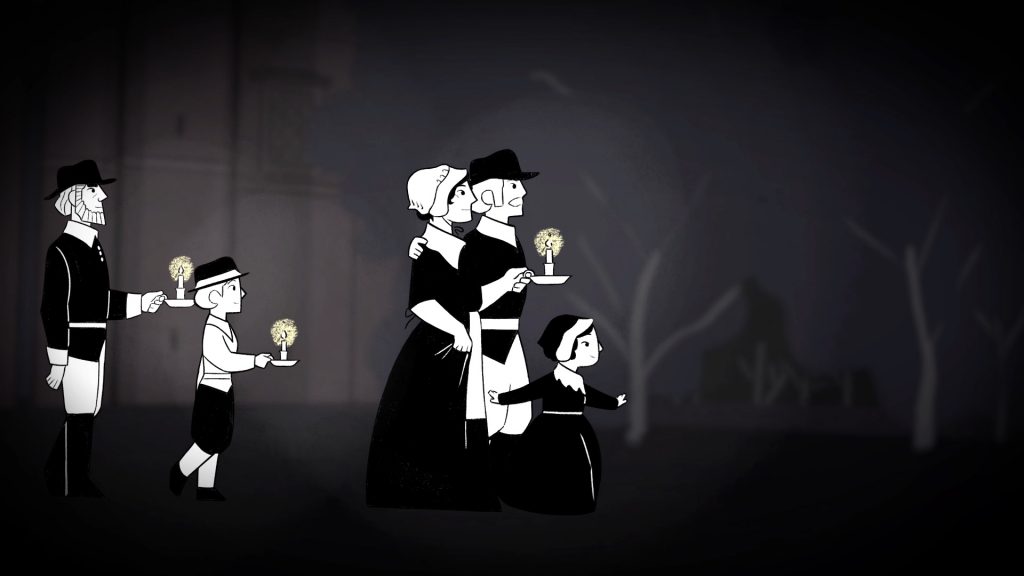The Pilgrims and providence

The Pilgrims had a strong belief in ‘providence’, which means the intervention of God’s will. They often saw providence in things that happened to them on their journeys, and it’s something William Bradford mentioned in his diary of their journeys and lives, Of Plimoth Plantation.
By holding this belief, it seemed to help them carry on, even in the face of what might have seemed to others insurmountable challenges. It’s important to remember too that at this time, four centuries ago, this was a time before modern science, medicine and technology which might have explained the way things in the world were differently.
There are some examples of this in Bradford’s writings which give an insight into the mindset of the Separatists who fled from Lincolnshire to Holland. In May 1608, a large group fled to Immingham to meet a Dutch ship. Things didn’t go to plan though, and some of the men escaped on the ship, separated from the rest of their families.
It took them fourteen days to arrive in Holland, after a storm at sea drove them up as far as the coast of Norway. Bradford attributed their miraculous survival to God’s hand:
“But when man’s hope and help wholly failed, the Lord’s power and mercy appeared in their recovery; for the ship rose again and gave the mariners courage again to manage her … in the end [the Lord] brought them to their desired haven, where the people came flocking, admiring their deliverance”
There’s another story from a voyage which carries on this strong belief in providence, as Bradford recounts, this time on the Mayflower, on their way to America.
Bradford recalled how the crew didn’t always treat their passengers kindly, until the death of one of the sailors made them think twice. This was, in Bradford’s words, ‘God’s providence’ at work:
“There was a proud and very profane young man, one of the seaman, of a lusty, able body, which made him the more haughty; he would always be condemning the poor people in their sickness and cursing them daily … [telling] them that he hoped to help to cast half of them overboard before they came to their journey’s end … But it pleased God … to smite this young man with a grievous disease, of which he died in a desperate manner, and so was himself the first that was thrown overboard … It was an astonishment to all his fellows for they noted it to be the just hand of God upon him.”
This crewman was one of the few casualties of the voyage, and his death was clearly seen as a lesson for others on the ship.
So many setbacks befell the Separatists on their journeys, but understanding how their faith relied on ideas like providence can help explain why, time and time again, they continued on each new journey and all the risks that entailed.
If you’re interested in reading more about this topic, you might like to read Nicholas Guyatt’s Providence and the Invention of the United States, 1607-1876 (Cambridge University Press, 2007) or Neal Salisbury’s Manitou and Providence: Indians, Europeans, and the Making of New England, 1500-1643 (Oxford University Press USA, 1984).
Next week: Tolerance – what happened for the Pilgrims before religious tolerance was a right?
Enjoying PilgrimAGE? We’d love to hear your feedback.